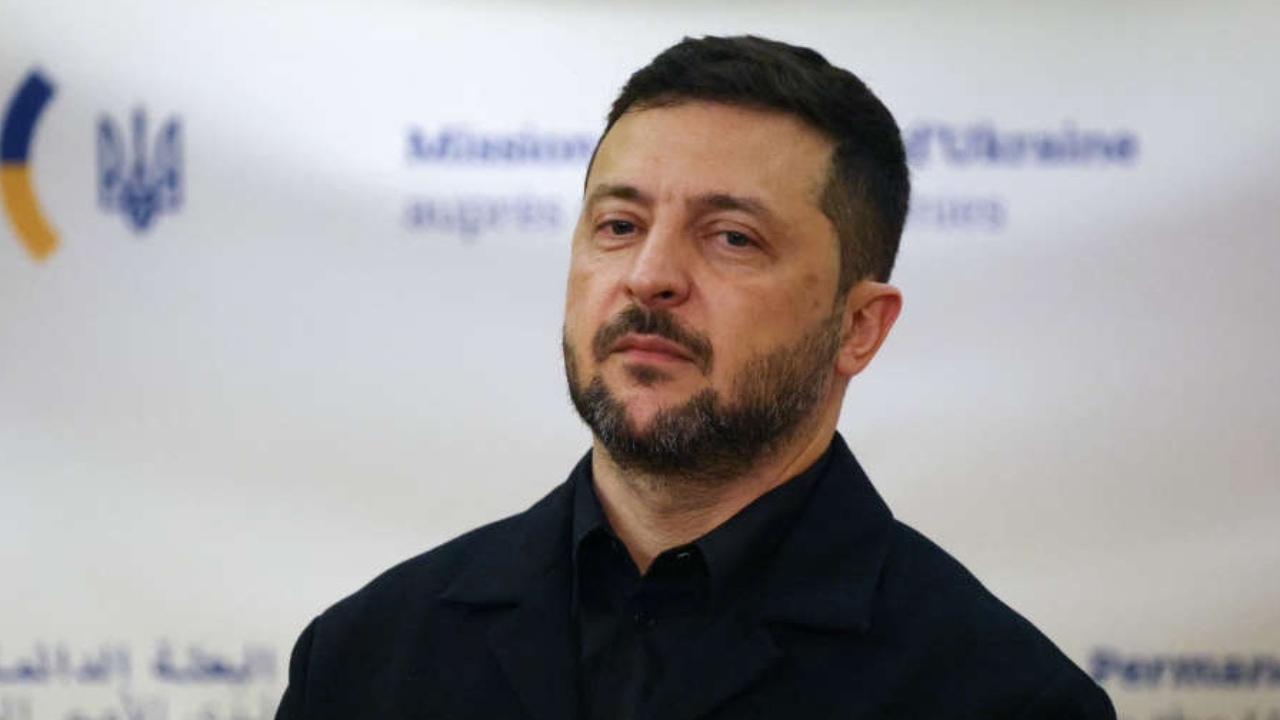
Stay Young and Radiant: 10 Vegetarian Foods That N
Discover the top 10 vegetarian foods to naturally boost collagen and stay young. Learn how plant-bas

Photo:AFP
When President Volodymyr Zelenskyy announced that Ukraine had restored diplomatic ties with Syria, it came as a surprising yet strategic decision. After nearly a decade of broken relations, this move shows Kyiv’s efforts to reshape its international standing, not only in Europe but also in the Middle East. It reflects both the changing realities of global politics and Ukraine’s determination to expand its influence beyond its immediate neighborhood.
Background of the Break in Relations
Ukraine and Syria were not always cold toward each other. Diplomatic ties were established in the early 1990s after Ukraine gained independence following the collapse of the Soviet Union. For years, relations were modest but functional, mostly limited to basic diplomatic exchanges and low-level trade.
But in 2016, everything changed. Syria openly supported Russia’s annexation of Crimea in 2014, a move that Ukraine strongly opposed. At that time, Kyiv was working intensely to secure global recognition of Crimea as part of Ukraine, so Syria’s position—siding with Moscow—was seen as a direct challenge to Ukraine’s sovereignty. As a result, Ukraine suspended diplomatic relations, closing its missions and putting all official contact on hold.
Since then, Ukraine and Syria have remained on opposing sides of international politics. For Ukraine, alignment with the West and opposition to Russian aggression were central goals. For Syria, Moscow remained a close ally, providing military and political support to President Bashar al-Assad during the long and brutal civil war.
Why Ukraine is Restoring Ties Now
Zelenskyy’s decision to reopen channels with Damascus has several layers of meaning. First, it signals Kyiv’s desire to reduce isolation and make its presence felt in regions where Russia has traditionally held strong influence. The Middle East is one such region. By re-establishing diplomatic links with Syria, Ukraine is not only opening a communication channel with Damascus but also testing the waters in a broader geopolitical arena.
Second, this move serves Ukraine’s long-term strategic interests. Diplomatic isolation is one of the biggest risks for a country at war. For Ukraine, which continues to resist Russian aggression on its territory, every new partnership—even with countries once considered unfriendly—represents an opportunity to widen its network of support. Even if Syria is unlikely to take an openly pro-Ukraine stance, simple communication and dialogue can help Kyiv extend its reach in international debates.
Third, the decision highlights Ukraine’s adaptability in foreign policy. In diplomacy, there are no permanent enemies, only shifting interests. What seemed unthinkable in 2016 has become possible in 2025 because Ukraine’s needs have changed, and so has the broader global environment.
What This Means for Syria
For Syria, restoring relations with Ukraine could also bring benefits. Damascus has long been dependent on Russia and Iran to sustain its ruling government. However, rebuilding even a symbolic link with Ukraine may give Syria more room to maneuver in international politics. It provides Syria with a channel to show that it is not entirely locked into a one-sided alignment with Moscow.
Furthermore, any opening of communication with Ukraine could create practical benefits like cultural exchanges, limited trade opportunities, and dialogue on reconstruction efforts in Syria, especially as the country continues to emerge from years of civil war. While these benefits may be modest, they could still diversify Syria’s external relations.
A Strategic Message to Russia
Perhaps the clearest message behind Ukraine’s decision is directed at Russia. For years, Moscow has used its influence in the Middle East to project power, from its intervention in Syria to its partnerships with Iran and other regional actors. By opening relations with Syria, Ukraine is showing that it, too, is prepared to play on Russia’s turf.
This move is less about expecting dramatic cooperation and more about signaling resilience. It is Ukraine’s way of saying that even in regions where Russia feels confident, Kyiv can still build diplomatic presence. It is also a reminder that Ukraine is not confined to being a victim of war—it aspires to act as an independent player shaping its own foreign policy.